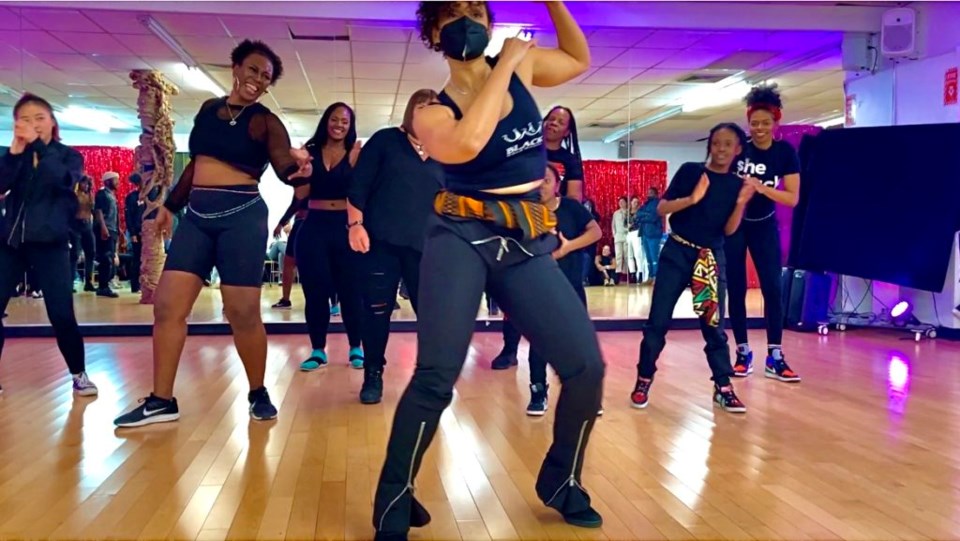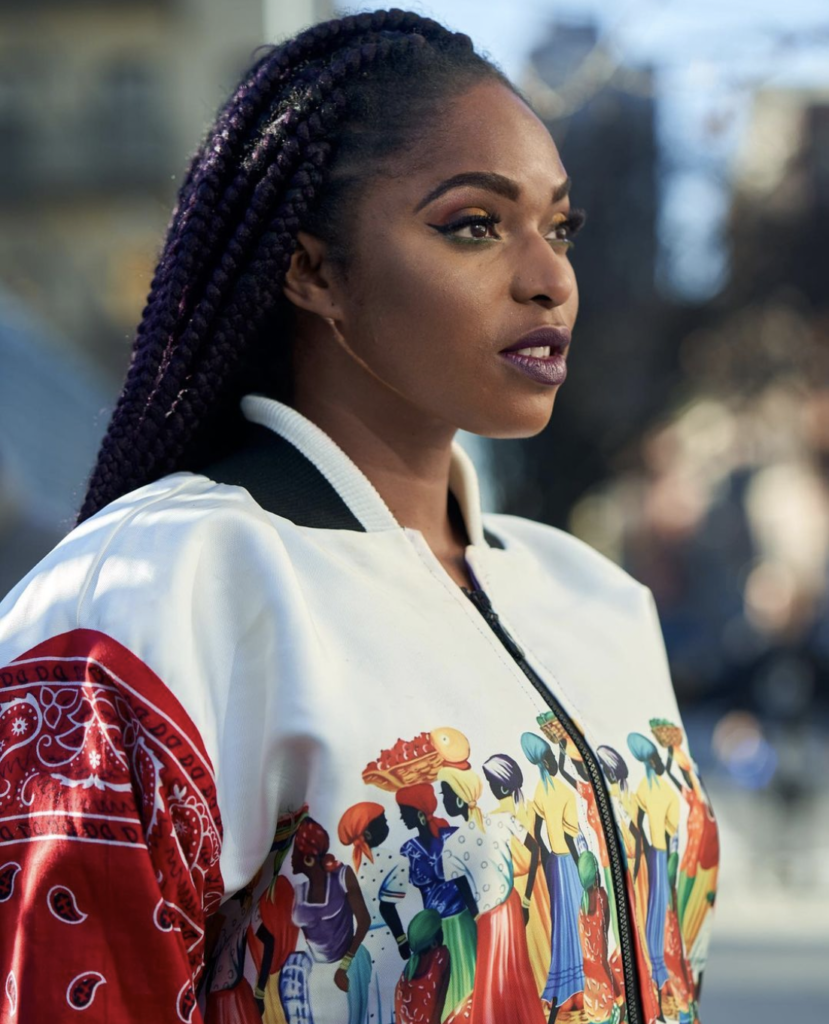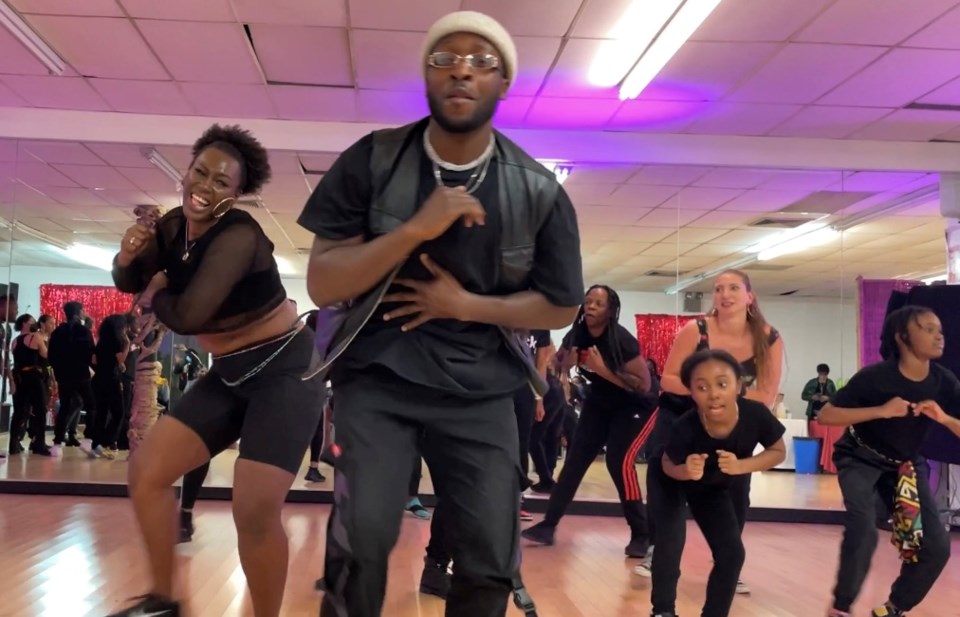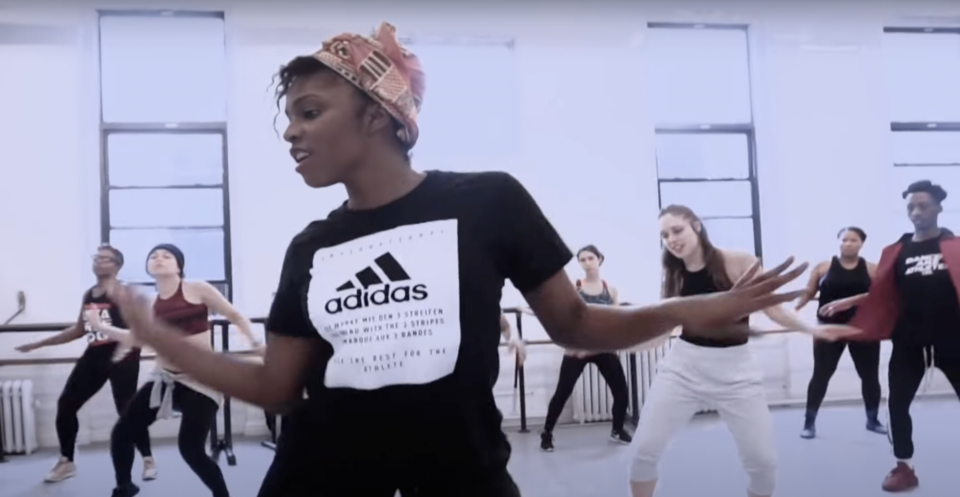For the past decade in Brooklyn, Cumbe Center for African and Diaspora Dance has brought residents traditional dance instruction from across the African Diaspora– styles from Cuba, Haiti, Brazil, West Africa and more.
On February 4, as part of its ten-year anniversary, Cumbe, in collaboration with Afrodance New York, kicked off a dance festival, Afro’Dance Emerges: The Beat, The Beats & The Dance, taking place at 1368 Fulton Street in Bedford-Stuyvesant.
The festival represents a reemergence of sorts for the dance center, as it brings back a number of in-person classes after two years of remote instruction during the pandemic. Also with the festival, Cumbe becomes the first in the borough to host a 6-week-long series of workshops dedicated to the genre of African social and street dances popularly known as “afrobeats.”

“Coming into Cumbe’s 10th year, it’s important to continue offering new, relevant cultural movements,” said Chicava Tate, the director of programming at Cumbe.
And what the center is touching on is more than a mild movement, to say the least: The infectious melodies and corresponding dances pouring out of the Continent these days are influencing the swagger and cadence of so many other music styles-- from hip hop to reggae, from alternative to Latin and pop!
For the festival, Cumbe has invited some of the top instructors from around the world to teach the hottest contemporary Afrodances lighting up the dance scene. However, its goal is about far more than hopping onto the latest global trend; it’s about using the moment to understand the culture.
“We really wanted to bring more information, clarity and knowledge about what African street and social dances are, because if you’re not specific and there is confusion, people can do with your culture whatever they want,” said Angel Kaba, who founded Afrodance New York in 2014 and who also heads up digital marketing and cultural strategy at Cumbe.

“If you really look at [the roots of African social dance] there are 6 big nations– Congo, Ghana, Nigeria, Ivory Coast, Angola, and South Africa. Afrobeat was created in Ghana and made popular in Nigeria by Fela, but it goes under the umbrella of Afrodance,” Kaba said. “It’s up to the instructor to specify where each style is from.”
Born and raised in Belgium, Kaba refers to herself as Afro-Caribbean, since her parents are from The Congo and Martinique. She was a classically trained ballet dancer for ten years beginning at age 6 before diving into hip hop and making her way to New York City to train at Broadway Dance Center and Alvin Ailey Extension, to name a few.
She began training more in the traditional dance styles of the Congo and West Africa and also enjoyed the African social and street dances showcased daily on Instagram and TikTok. Her experience “cross-training” in classical, traditional and street dance styles has helped her better connect the dots between the popular social dances and their historical roots.
“A lot of Afro'Dances have some roots in Congolese dances. People are debating the name Afro'Dance," she said. "But we need to agree on something that we all benefit from, which is why I refer to all of the dances as Afrodance.”
Lisa Foster, Cumbe’s director of operations, said the timing was right for an Afrodance conference: “It’s after COVID, the mandates are ending. ... So it’s just happiness right now and Afrodance is what’s happening now. It’s what’s moving people.”

Foster says the inaugural event was a necessary and natural next step for Cumbe because it was an opportunity to expose the next generation to the origins of the same dances they’re following on social media. “They can hear the live drums and recognize the patterns in modern music from the traditional rhythms,” Foster said. “I’m thrilled.”
For Cumbe, the Afrodance festival is about closing the gap and preserving the culture. It's about seizing the moment at a time when Africa’s influence on pop culture is accelerating, while educating those who are interested around its cultural beginnings.
“If it wasn’t for Black America, there would be no pop culture here,” said Kaba.
And since the trajectory of Black culture in America, from its genesis to its integration into popular culture to its mass commercialization often leaves the original creators ultimately with no stake and no say, Kaba hopes to avoid the seduction of popularity and fame in exchange for silence and lack of control.
"That's why it’s important that the people that create the culture get their voices heard and get to name it,” said Tate of the Afrodance Movement. “The nomenclature should be defined by the makers."
To help celebrate Cumbe's 10-Year Anniversary and to learn about more of Afro’Dance Emerges: The Beat, The Beats & The Dance remaining events--including online and in-person classes, a panel discussion and film screening-- go here.




